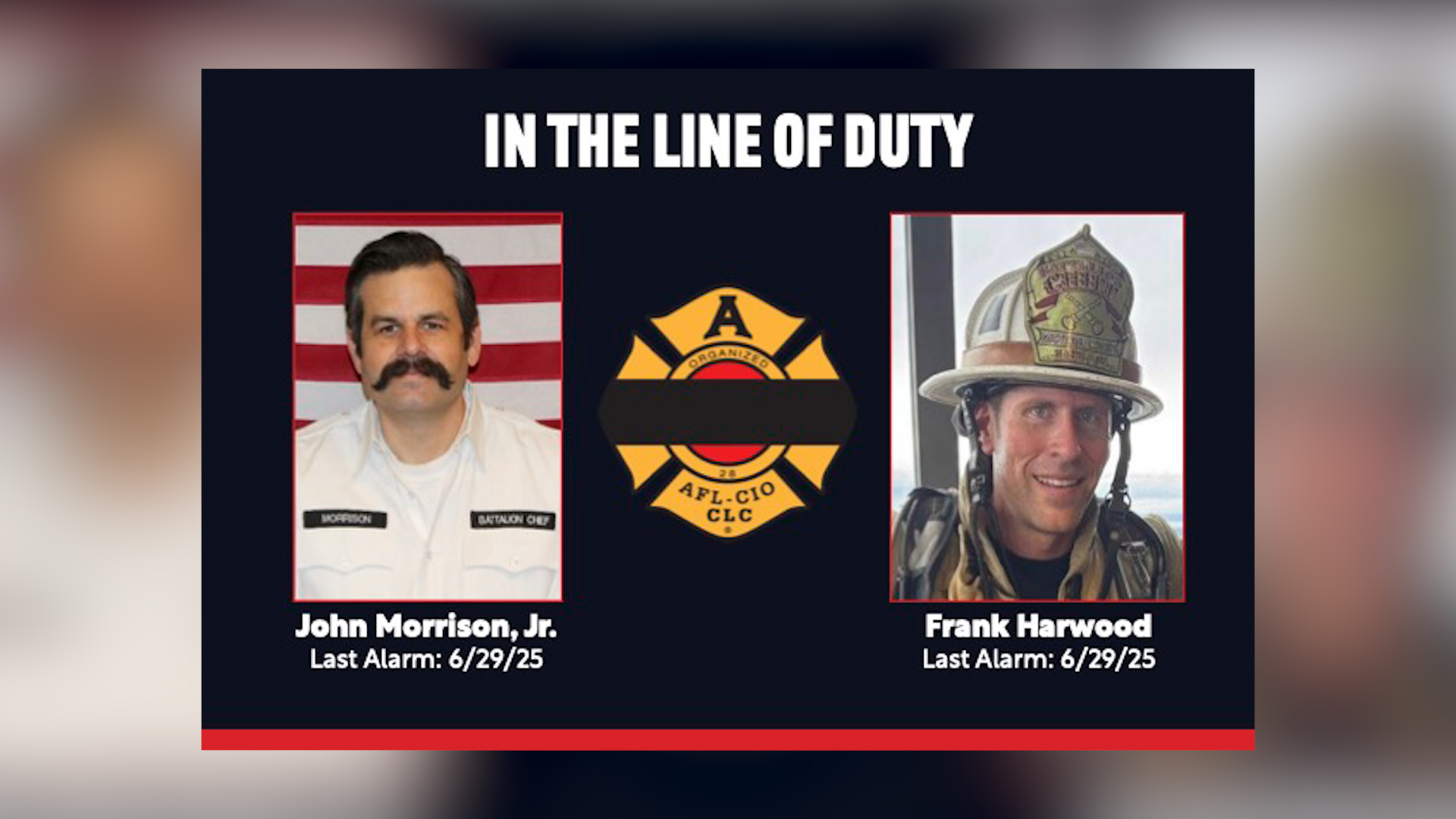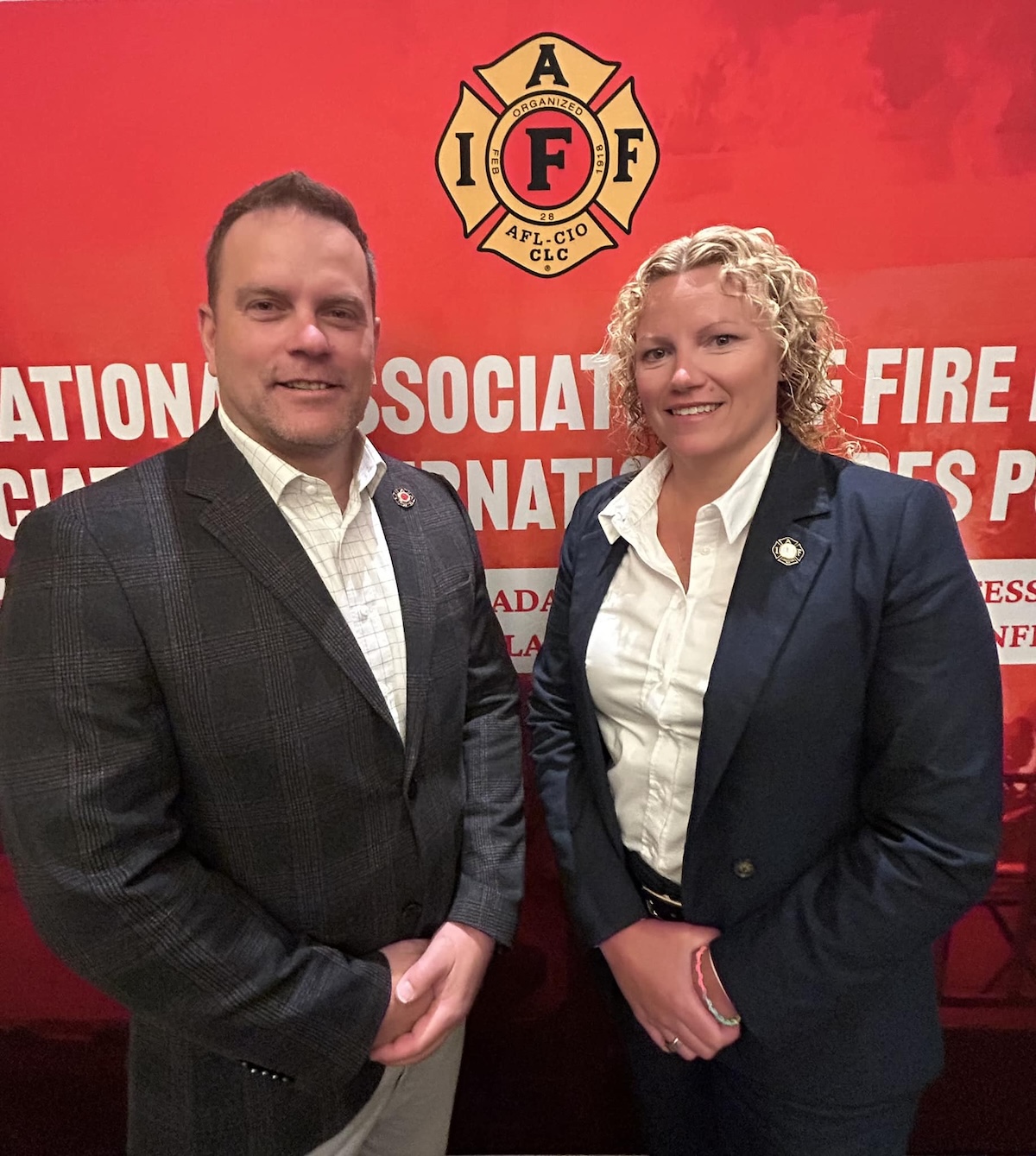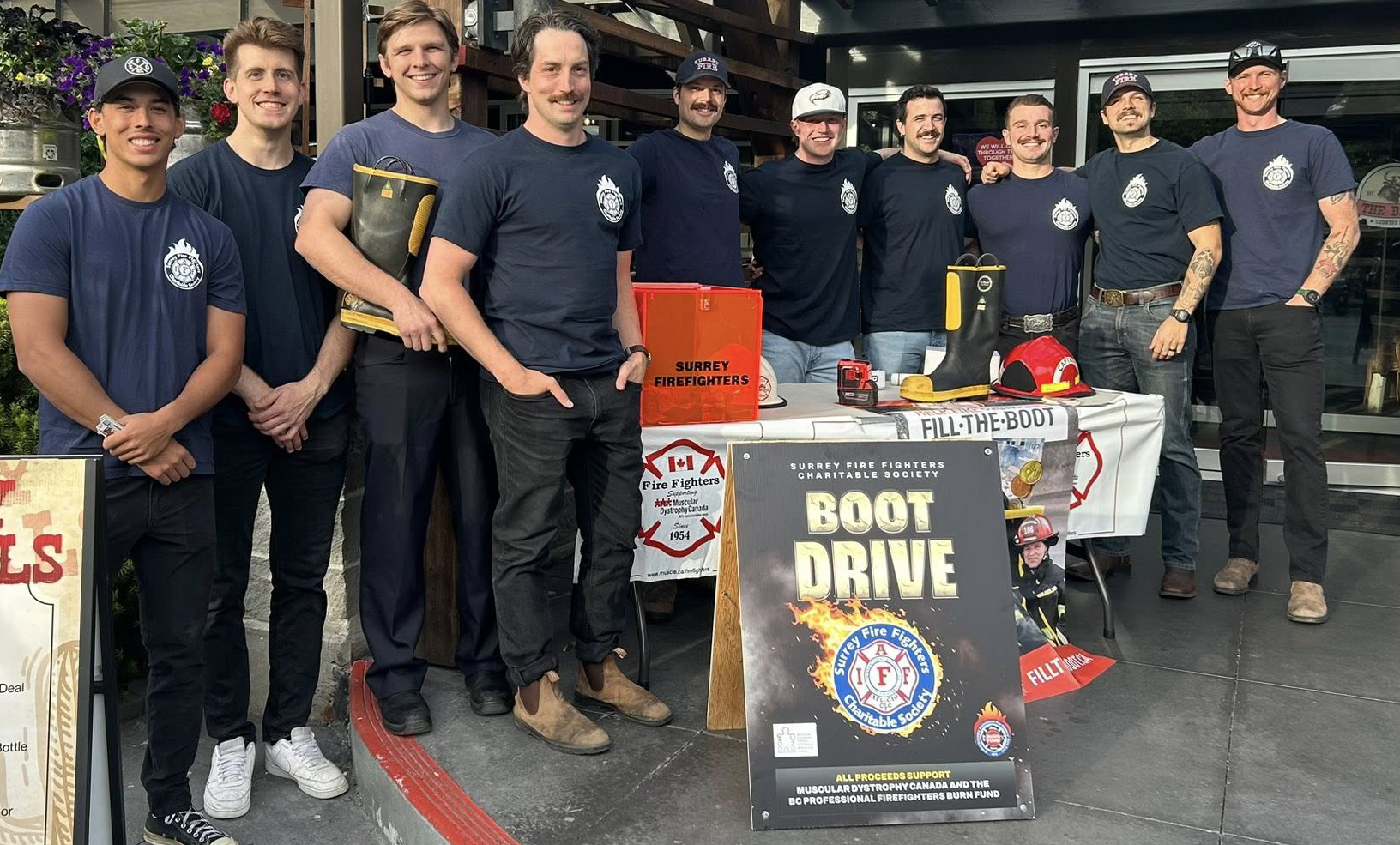
A chance comment to his family doctor at the end of a routine physical likely saved Derek Balcaen’s life.
In October 2021 when he was 41 and had been on the job for 17 years, the Winnipeg, Manitoba fire fighter and longtime Local 867 union leader noticed a lump in his scrotum while in the shower. Something to mention to his doctor during an upcoming routine physical, he thought.
The lump seemed to disappear in the interim, and when his physical came up, he almost didn’t mention it to his doctor. But as he was putting on his coat to leave, he did.
His doctor – the same doctor who delivered him in 1978 – knew Balcaen was a fire fighter. He took the matter seriously and ordered testing. While the lump seemed to have disappeared, a trace amount of blood was detected in his urine, calling for further investigation. During a subsequent cystoscopy, Balcaen saw the technician and his doctor exchange looks based on what was appearing on the video screen, followed by a flurry of medical terms.
It was bladder cancer.
“I was extremely concerned, as you might imagine,” Balcaen says. “I’m 41 and excited about going to Hamilton to see my Blue Bombers defend their Grey Cup title, and there it is on the screen, a tumour inside my bladder.” He worried that the stories about delays in Canada’s healthcare system would mean he would have to wait an extended period of time “with this grenade inside me.”
Luckily for Balcaen, things happened fast. Less than two weeks later, surgery to remove the cancer was completed, followed by a short round of chemotherapy. The early detection and intervention successfully stopped his bladder cancer, a disease that 13,400 Canadians were diagnosed with in 2023 and which claimed 2,600 lives, according to the Canadian Cancer Society.
Balcaen is grateful to the healthcare system, which he says has been fast and professional every step of the way. Two years after his battle with bladder cancer, Balcaen is participating in regular follow ups but is now cancer free, including a second brush with the disease when a tumour was found on his appendix after it was removed following appendicitis.
While his story is a personal one, Balcaen is glad to have the opportunity during National Fire Fighter Cancer Awareness Month to share his story in the hopes it will encourage other fire fighters to be vigilant, to know they are at greater risk of certain cancers, and to be proactive when it comes to protecting themselves from cancer.
The medical testing that may stem from investigation into certain physical signs is certainly uncomfortable. A cystoscopy for example involves inserting a scope through the ureter to the bladder so that any tumors or unusual growths can be seen. Balcaen says while such tests may cause discomfort, it’s a small price to pay for looking after your health.
“It’s not even painful, it’s a few minutes of discomfort. We put up with mosquitoes in the summer because we like to go golfing or fishing, let’s put up with a little discomfort for the privilege of extending our lives for decades and being around for our kids and your grandkids,” Balcaen says.
“We all have so much to live for… our friends, our families, our lifestyles. If for nothing else than the work you put in on your job, you deserve to have that healthy retirement waiting for you at the end of the rainbow,” he says.
His advice to other fire fighters is to get tested as if you have a history of cancer in your family, from day one, so that you have baseline results that can be used as a comparison going forward.
“Cancer awareness doesn’t have to define you. You don’t have to be a crusader for the cause to simply add this to your conversation with your family doctor. They found a trace of blood in my urine and that led to extending my life probably for decades as a result,” Balcaen says. “The juice is absolutely worth the squeeze on this one.”
Going forward, Balcaen is further protecting himself with some lifestyle changes. “Union work completely replaced the physical activity in my life. I was in the calendar back in ’07, going to the gym three times a week used to be a big part of my life. And now I am glad to say that at least in the last year, I’ve returned to that,” he says.
“I feel better and I’m eating better. It’s a good message for our members about work-life balance, especially for those with the desks in our union. We’re there taking care of the members, but who’s taking care of us?”





